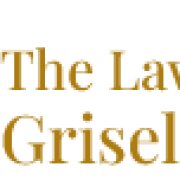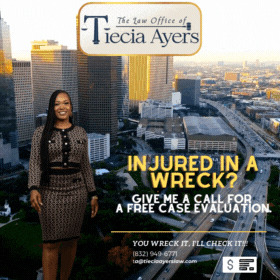Best Defamation Lawyers in Texas
Share your needs with us, get contacted by law firms.
Free. Takes 2 min.
Or refine your search by selecting a city:
List of the best lawyers in Texas, United States
About Defamation Law in Texas, United States
Defamation is a legal term for any false statement made about a person that injures their reputation. In Texas, defamation can take the form of libel (written defamation) or slander (spoken defamation). Texas law aims to balance the protection of individuals' reputations with the right to free speech. Not every negative statement qualifies as defamation - the statement must be false, "published" to a third party, and result in some form of harm to the person’s reputation.
Why You May Need a Lawyer
Legal assistance may be necessary if you believe someone has published false statements about you that have damaged your reputation, or if you are accused of defaming someone. Common scenarios include:
- Someone spreads damaging rumors about you at work or in your community.
- A news outlet or website publishes misleading information affecting your business.
- You are facing a lawsuit for comments made online, such as on social media platforms.
- You need to respond to a cease-and-desist letter regarding alleged defamation.
- An employer includes false statements in a reference check.
Defamation cases can be complex. A lawyer can help you assess whether you have a valid claim, gather evidence, file a lawsuit if necessary, and defend against defamation claims.
Local Laws Overview
Texas has unique legal standards and procedures related to defamation, including:
- Truth as a Defense: If a statement is true, it is a complete defense to a defamation claim.
- Opinion Protection: Expressions of opinion, as opposed to statements of fact, are generally protected under the First Amendment and Texas law.
- Actual Malice Standard: Public figures or officials must show that false statements were made with "actual malice" - that is, with knowledge of falsity or reckless disregard for the truth.
- One-Year Statute of Limitations: In Texas, you have only one year from the date of publication to file a defamation lawsuit.
- Anti-SLAPP Laws: Texas applies the Texas Citizens Participation Act (TCPA), intended to prevent lawsuits that target free speech on public issues, often called "Strategic Lawsuits Against Public Participation" (SLAPP).
- Privileges and Immunities: Some statements are privileged, such as those made in court, in legislative proceedings, or in some employment references, and cannot be the basis for a defamation claim.
Frequently Asked Questions
What is the difference between libel and slander in Texas?
Libel refers to written or published defamatory statements, while slander refers to spoken defamatory statements.
Is a negative opinion defamation?
No, opinions are generally protected as free speech unless they imply false facts. Only false statements of fact that harm reputation may be considered defamatory.
What must I prove to win a defamation case in Texas?
You need to show (1) a false statement was made, (2) the statement was published to a third party, (3) the statement caused harm to your reputation, and (4) the wrongdoer was at fault.
What is the "actual malice" standard?
For public figures or officials, "actual malice" means the false statement was made knowingly or with reckless disregard for the truth.
Can I sue someone for something they posted about me online?
Yes, if the online statement is false, harms your reputation, and meets the elements of defamation, you may have a viable claim.
Are there any defenses to defamation in Texas?
Truth, opinion, privilege, and consent are common defenses against defamation claims in Texas.
How long do I have to file a defamation lawsuit in Texas?
You must file within one year of the date the allegedly defamatory statement was published or spoken.
What are “privileged” statements?
Privileged statements are protected from defamation claims, such as those made during legislative debates, court proceedings, and some employment references.
Can a business sue for defamation?
Yes, businesses and organizations can sue if false statements harm their reputation or economic interests.
What remedies are available if I win my defamation case?
You may recover damages for actual losses, mental anguish, punitive damages in some cases, and a court order requiring a retraction or apology.
Additional Resources
If you need further guidance or want to research defamation laws in Texas, consider consulting these resources:
- Texas Judicial Branch - offers information on filing claims and court procedures.
- State Bar of Texas - provides legal education, referrals, and lawyer directories.
- Texas Attorney General - offers consumer protection and mediates certain disputes.
- Your local county law library - can help you access relevant statutes and case law.
- Legal aid organizations such as Texas Legal Services Center or Lone Star Legal Aid for those who qualify for free legal help.
Next Steps
If you believe you have been defamed or are facing allegations of defamation in Texas, consider the following steps:
- Document Everything - Save copies or records of the alleged defamatory statements, including dates, times, witnesses, and any resulting harm.
- Avoid Retaliation - Do not respond in kind or escalate the situation, as further comments could be used against you.
- Consult a Lawyer - Seek a qualified Texas attorney experienced in defamation law to evaluate your case and advise your options.
- Be Aware of Deadlines - Remember the one-year statute of limitations for filing a defamation claim in Texas.
- Consider Alternatives - Sometimes, a retraction or mediation may resolve the issue without a lawsuit.
Taking prompt, informed action can protect your rights and help you achieve the best possible outcome.
Lawzana helps you find the best lawyers and law firms in Texas through a curated and pre-screened list of qualified legal professionals. Our platform offers rankings and detailed profiles of attorneys and law firms, allowing you to compare based on practice areas, including Defamation, experience, and client feedback.
Each profile includes a description of the firm's areas of practice, client reviews, team members and partners, year of establishment, spoken languages, office locations, contact information, social media presence, and any published articles or resources. Most firms on our platform speak English and are experienced in both local and international legal matters.
Get a quote from top-rated law firms in Texas, United States — quickly, securely, and without unnecessary hassle.
Disclaimer:
The information provided on this page is for general informational purposes only and does not constitute legal advice. While we strive to ensure the accuracy and relevance of the content, legal information may change over time, and interpretations of the law can vary. You should always consult with a qualified legal professional for advice specific to your situation.
We disclaim all liability for actions taken or not taken based on the content of this page. If you believe any information is incorrect or outdated, please contact us, and we will review and update it where appropriate.
Browse defamation law firms by city in Texas
Refine your search by selecting a city.















